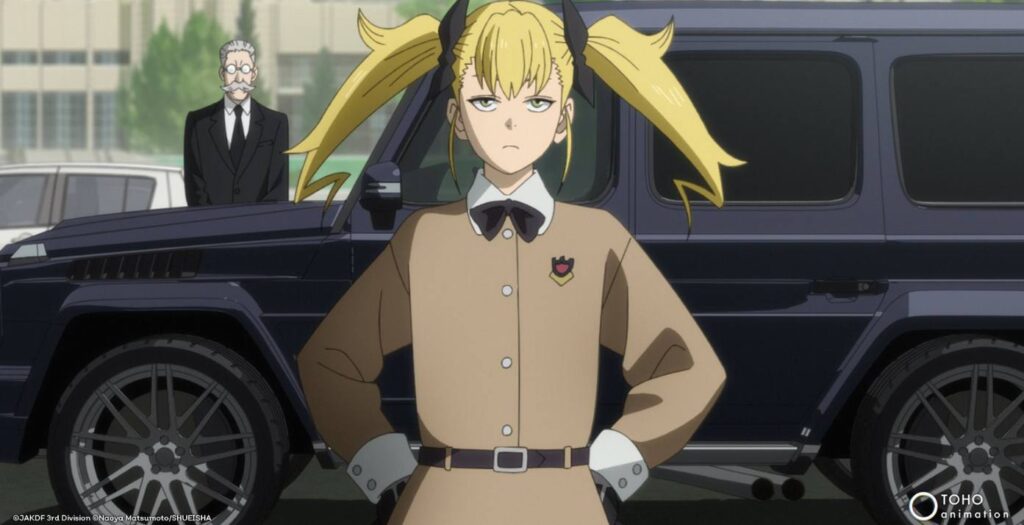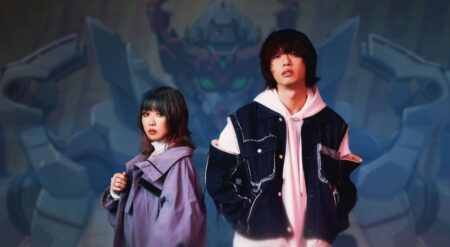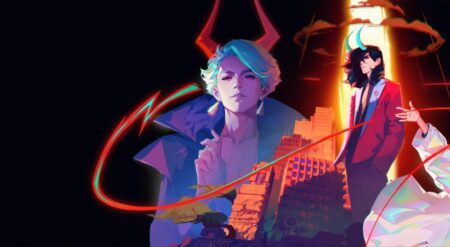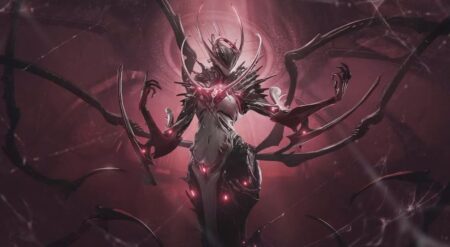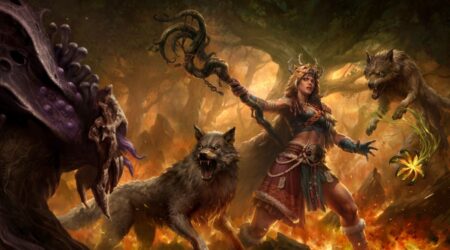Kaiju No. 8 has been a hit since it began its run in Shonen Jump+. The series, written and illustrated by mangaka Naoya Matsumoto, centers on Kafka Hibino. Unlike other Shonen series, however, he’s a 32-year-old protagonist. But the series doesn’t stop bucking tropes with it’s lead, it continues to its ensemble cast. We got the chance to talk with the Kaiju No. 8 English dub cast: Nazeeh Tarsha, who voices Kafka; Adam McArthur, who voices Reno Ichikawa; and Abigail Blythe, who voices Kikoku Shinomiya. Animated by Production I.G., the series is trailblazing same-day dub releases and shonen characters at the same time.
We got to talk about how their characters push the expectations of shonen action series and why they think that fans resonate with them. While Kafka’s age is the easiest identifiable part of breaking shonen tradition, Shinomiya is a part of the changing role of women in shonen anime and manga. Once relegated to side kicks, love interests, and fan service, the recent bevy of shonen titles has shown women as more than something to won or looked after. Shinomiya is a force all of her own, with or without the boys on the Anti-Kaiju Defense Force.
When asked about Sinomiya and what she can mean for the many women shonen fans, Abigail Blythe explained from her perspective, not just as a voice actor, but as a fan of anime altogether. “It is so exciting for me, especially because I am a consumer of anime. [I] go out of my way to look for anime with big female casts and female characters that aren’t just used for romantic purposes or comedic relief or things like that. So, having a strong female character like Kikoku Shinomiya, who is a pillar of inspiration for Kafka—she’s so high up and seen as like the leader, which is so cool,” Blythe explained.
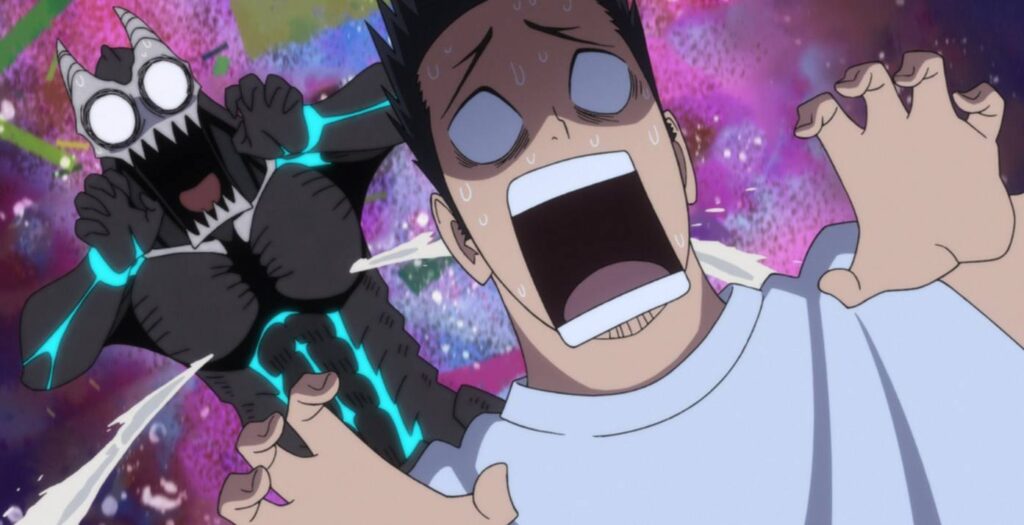
Shinomiya isn’t just inspirational for Kafka; Blythe thinks she can be inspirational for those watching the Kaiju No. 8 English dub, too. “I think it’s gonna be great for teenage girls to have these inspirations and people to look up to and be like, ‘Wow, I see myself in this role as someone powerful.’ She’s not just used for roundabout, sensual imagery, which I think anime comes across as a lot for female characters. But [Kaiju No.8‘s women] actually have substance and they don’t need a man. And as far as we know, there really isn’t any romance so far in Kaiju No. 8, which is kind of a relief, even as a big romance fan myself. [Playing Shinomiya] has been really, really exciting. And I’m excited for fans to see more of it too.”
A fan of shonen series myself, it’s clear that stories in the “genre” are more than just tournament arcs and big battles—but they don’t tend to wear them on their sleeve. With Kaiju No. 8 however, the depth of the series starts with its lead character. To be honest, I didn’t even know I needed a 30-something shonen protag until it happened. While the core of Kafka’s character is still the shonen-recipe of “follow your dreams,” doing that means something entirely different when you’re a young adult trying to set the course for your future.
Nazeeh Tarsha explained why everyone across ages can identify with Kafka, “A prevailing thought just within the entertainment industry that comes up a lot, is [that] it’s never too late to start pursuing your dreams. It’s never too late to give your hopes and aspirations a shot, you know?”
“For one reason or another, whether it be life circumstances, parental upbringings, or whatever it may be, some folks don’t have the liberties of going after their passions and those things that they sort of dream about,” Tarsha’s point hits home, and ultimately explains why Kafka is so important as a protagonist. He continued, “But with Kafka—and thanks to Ichikawa kind of bolstering him and pushing him into it a little bit—it does show us that it really isn’t too late. The only thing that’s stopping you is yourself and you won’t know unless you give it an honest try. I think [Kafka] sort of gives [audiences] the rekindling of hope that a lot of folks our age and older tend to sort of just forget about or lose.”
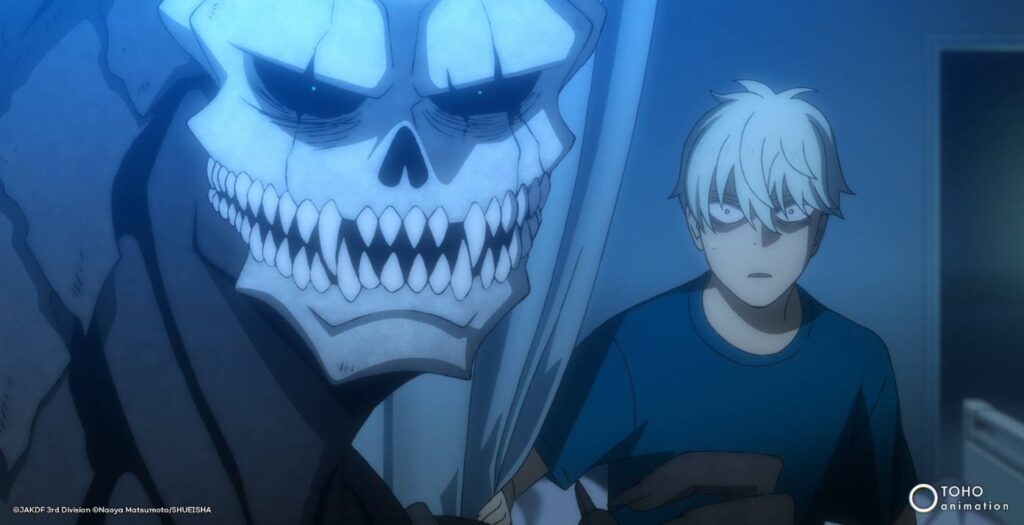
More often than not, you can’t stoke that hope alone. While traditional shonen stories use a stark rivalry to push their protagonists forward, Kaiju No. 8 is different. Ishikawa is a supportive force for Kafka and has wisdom beyond his years that sets him apart in ensemble characters. Adam McArthur explained their relationship, “That’s sort of interesting about [Ishikawa and Kafka’s] dynamic. Ichikawa is almost the trope of the mentor, or the old wise one who finds the character who’s down and out, and then gives them his mission. [The one that] helps them find inspiration and then go off.”
McArthur continued, “At first, Ichikawa—without being like an old dude—is a mentor for Kafka.That’s just not something you normally see. He’s not his rival. I mean, he says that in one episode, ‘We’re rivals now.’ But I don’t think it’s in the same way that we’re used to seeing it [in shonen]. He is going to support [Kafka], and he is going to do whatever he can to make sure that [Kafka] doesn’t out himself in front of everybody or put himself in harm’s way. Then, very quickly, they just become fast friends and fast buddies. I think that’s super cool. I also like that we don’t necessarily get Ichikawa’s backstory right away, or [know] why he is the way he is—or maybe why somebody like Kafka resonates with him… He kind of plays his cards close to his chest, and he’s just there to help and support.”
The Kaiju No. 8 English dub is full of action and daring creature designs. It could have easily been lost in the action anime genre. But it isn’t. Instead, it’s captured viewers, and that’s due in no small part to how it shirks off the ghosts of the shonen past and embarks on a relatable story for the Toonami generation. The Kaiju No. 8 English Dub cast captures exactly why.
Kaiju No. 8 English Dub airs every Sunday on Crunchyroll.
This interview was edited for length and clarity.

